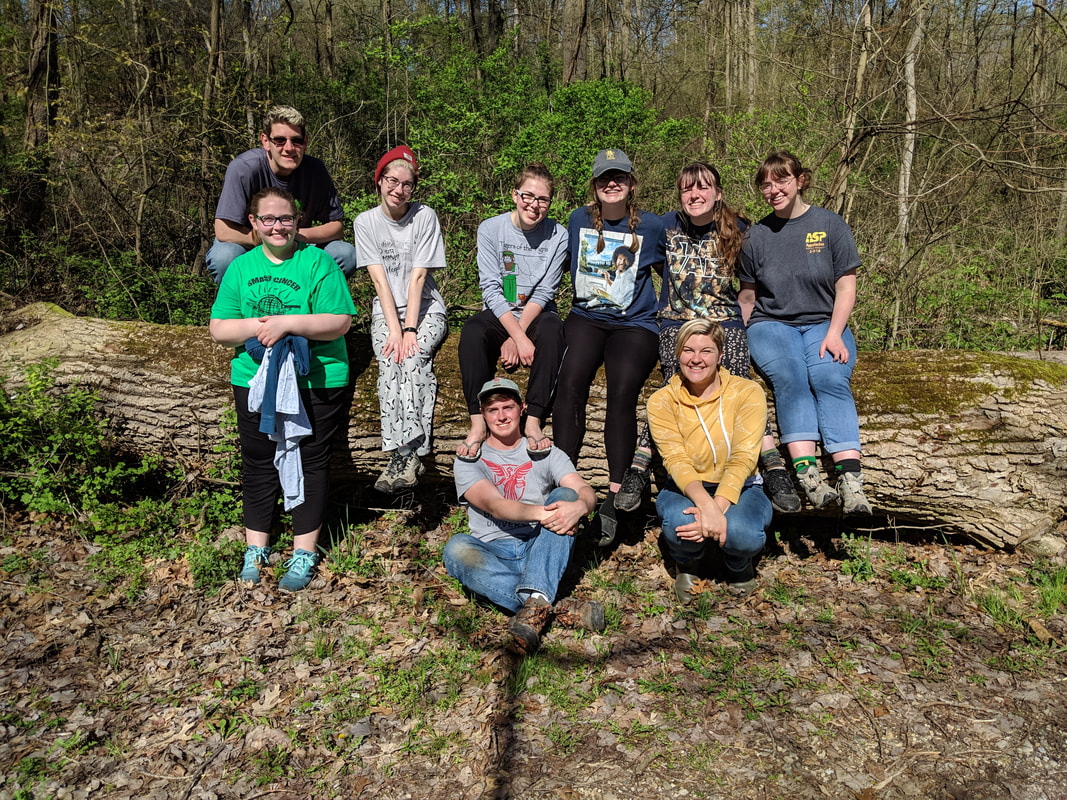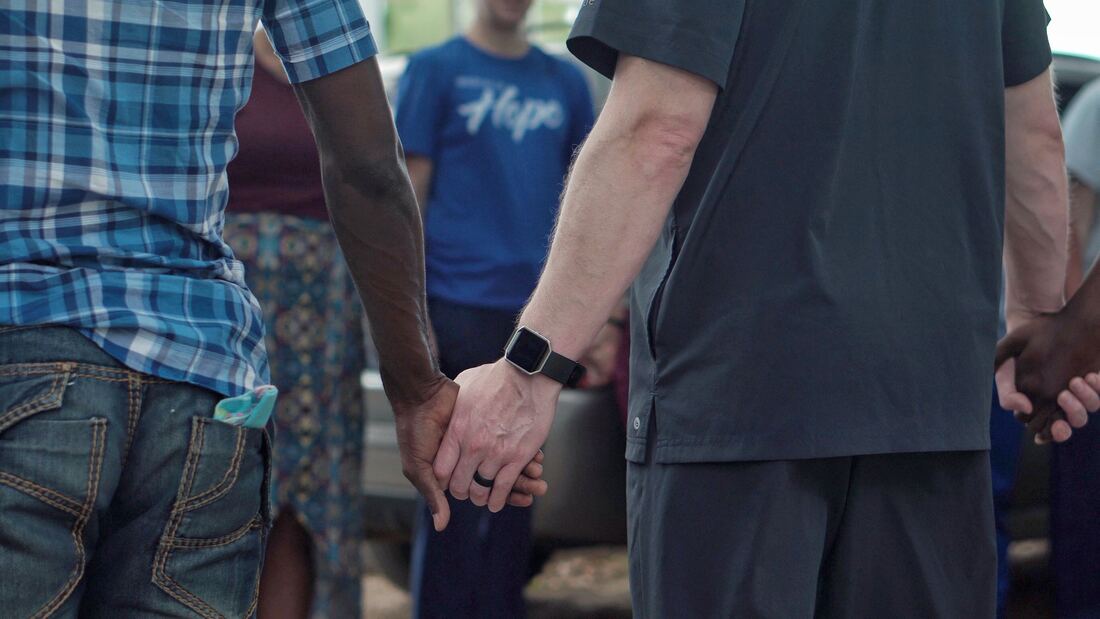"Anyone who has the honor to witness Elizabeth interact with youth can automatically see her dedication to youth ministry. Often youth feel overlooked and undervalued in our society, but they never feel less than enough with Elizabeth around. She values every word, encourages every question, and respects every person no matter their age."
-Nicole Kaplan, volunteer youth adviser and OWL teacher at the Unitarian Universalist Church of Muncie
“I have admired how Elka has come to embrace difficult realities as growth opportunities. Naming and understanding some learning challenges has given Elka the power, knowledge and grace to create an environment in which she creates relationships and work situations that engage her strengths and support her growing edges. Elka knows who she is, affirms her wholeness and works gracefully with her limitations.”
-Rev. John Tolley, Affiliated Faculty, Meadville Lombard Theological School
Lifespan faith formation
We are all on lifelong journeys of growth and learning. I am deeply committed to my own personal learning process and proudly model this for a congregation. Our religious growth is about more than intellectual learning. It is also about deeply connecting with people in small group ministries. It is about integrating the information we learn into our lives. It is about strengthening the connections between head and heart and spirit. For people of all ages, what we learn and how we learn it affects who we are as people of faith.
Religious Education is not just about gathering knowledge. We can take classes at plenty of other kinds of institutions if we just wish to increase the amount of information in our heads. We gather to learn together in religious community to go deeper. We reflect theologically on what we learn in safe, affirming environments. We challenge each other gently to continue to explore who we are and how we can progress in our growth.
Religious Education is not just about gathering knowledge. We can take classes at plenty of other kinds of institutions if we just wish to increase the amount of information in our heads. We gather to learn together in religious community to go deeper. We reflect theologically on what we learn in safe, affirming environments. We challenge each other gently to continue to explore who we are and how we can progress in our growth.
children's religious education
At 15, I began teaching the 2 year olds at my United Church of Christ church. The curriculums that I had previously taught to grade school children had involved far more treacherous ground for where I was theologically, given my own discomfort around the question of the divinity of Jesus. With 2 year olds I figured I could avoid this problem, as we mostly would teach lessons about Love. What I found was that I quickly came to love those young children so much that I followed them as they grew over the next three years until I left for college. They taught me more about sharing, growth and Love than I ever expected.
As often happens, there was something about the group that was more than the sum of the individuals. There was something holy that I found in them. I saw the seeds of sacred community growing in them. My primary goal while working with them was holding that safe and loving space. As the years passed, they opened me to the lessons that included more scriptural references and Jesus stories. They reminded me not to close myself off to the beauty within the stories.
As these experiences were unfolding, I was finding sacred community within my age range in Unitarian Universalist youth programming. Within Young Religious Unitarian Universalism I felt safe enough to experiment with my faith formation in ways that continue to shape me. I risked openly grappling with my white privilege with my peers. I fell into youth worship and spirituality leadership, where I first really felt the blossoming of my call to ministry. In YRUU, I felt held enough to heal old wounds and reach new depths of personal and spiritual development. I was blessed to have adult advisors who truly understood youth empowerment and who helped support me in bringing out new skills and interests.
Given how positive, powerful and important youth ministry was for my own faith formation and to the formation of many dear friends, I believe creating safe and empowering space for our young people to learn and grow is essential to ministry. Our children and youth are not just our future, but our present. They are capable of more than we know and often more than they know. On a congregational level, creating safe space for children and youth to gather and integrating them into the life of the congregation are equally important. While interaction with more of the congregation than their class and teachers opens their experience to more role models and opportunities, our children and youth also have incredible amounts to teach us, if we but let them. As their “teacher” I learned so much about community from the children that I was able to travel with from 2 to 4 years old. Also, I have gained more from my time with the youth in Muncie that I ever imagined. I am so grateful for all that they have given me of their wisdom, deep sense of community and un-ending love.
In my time in YRUU and since, I have learned how much our youth have always been at the forefront of our faith, leading us in more ways than we often give them credit for. Among other areas, our youth have been particularly bold and prophetic in terms of our racial justice work. Empowering our youth not only allows them to cultivate new strengths and passions, it helps to shape our faith as it bends ever more towards justice.
I am convinced that youth ministry literally saves lives and saves people on various levels of well being. It is imperative that we offer vital youth programming in all of our churches and on larger scales. Ministerial support and the commitment of resources on all levels are necessary to make this happen.
My ministry focuses on creating safe, life affirming and empowering spaces for people of all ages, with particular emphasis on children, youth and the marginalized. My experiences with children and youth have instilled in me an awe for what is possible when spaces are created in which our young people can engage in the process of continually becoming. I have been inspired by what can come of these spaces.
As often happens, there was something about the group that was more than the sum of the individuals. There was something holy that I found in them. I saw the seeds of sacred community growing in them. My primary goal while working with them was holding that safe and loving space. As the years passed, they opened me to the lessons that included more scriptural references and Jesus stories. They reminded me not to close myself off to the beauty within the stories.
As these experiences were unfolding, I was finding sacred community within my age range in Unitarian Universalist youth programming. Within Young Religious Unitarian Universalism I felt safe enough to experiment with my faith formation in ways that continue to shape me. I risked openly grappling with my white privilege with my peers. I fell into youth worship and spirituality leadership, where I first really felt the blossoming of my call to ministry. In YRUU, I felt held enough to heal old wounds and reach new depths of personal and spiritual development. I was blessed to have adult advisors who truly understood youth empowerment and who helped support me in bringing out new skills and interests.
Given how positive, powerful and important youth ministry was for my own faith formation and to the formation of many dear friends, I believe creating safe and empowering space for our young people to learn and grow is essential to ministry. Our children and youth are not just our future, but our present. They are capable of more than we know and often more than they know. On a congregational level, creating safe space for children and youth to gather and integrating them into the life of the congregation are equally important. While interaction with more of the congregation than their class and teachers opens their experience to more role models and opportunities, our children and youth also have incredible amounts to teach us, if we but let them. As their “teacher” I learned so much about community from the children that I was able to travel with from 2 to 4 years old. Also, I have gained more from my time with the youth in Muncie that I ever imagined. I am so grateful for all that they have given me of their wisdom, deep sense of community and un-ending love.
In my time in YRUU and since, I have learned how much our youth have always been at the forefront of our faith, leading us in more ways than we often give them credit for. Among other areas, our youth have been particularly bold and prophetic in terms of our racial justice work. Empowering our youth not only allows them to cultivate new strengths and passions, it helps to shape our faith as it bends ever more towards justice.
I am convinced that youth ministry literally saves lives and saves people on various levels of well being. It is imperative that we offer vital youth programming in all of our churches and on larger scales. Ministerial support and the commitment of resources on all levels are necessary to make this happen.
My ministry focuses on creating safe, life affirming and empowering spaces for people of all ages, with particular emphasis on children, youth and the marginalized. My experiences with children and youth have instilled in me an awe for what is possible when spaces are created in which our young people can engage in the process of continually becoming. I have been inspired by what can come of these spaces.




